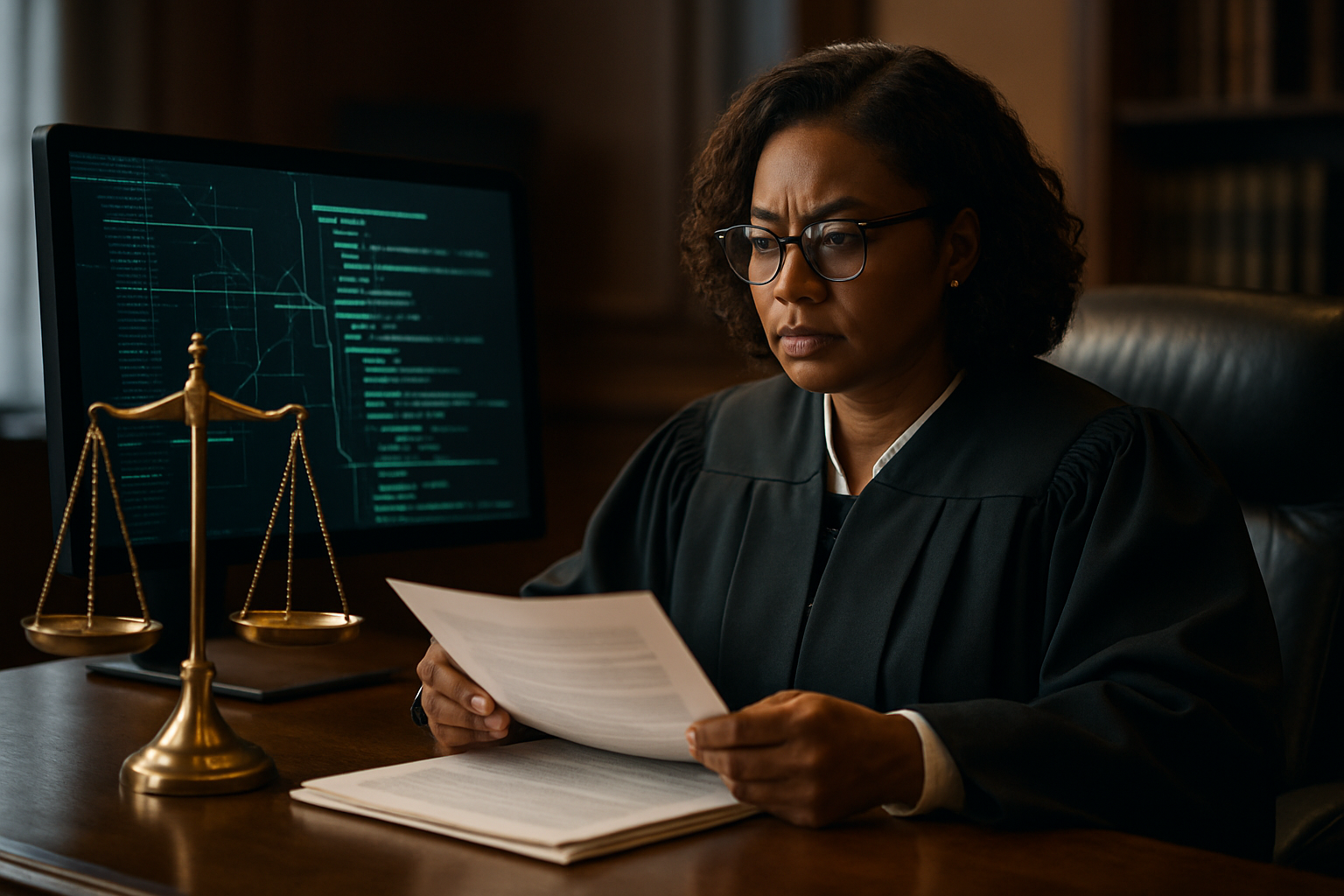Title: The Legal Landscape of Algorithmic Decision-Making
Introduction: In an era dominated by artificial intelligence and machine learning, algorithmic decision-making systems are increasingly shaping our lives. From credit scoring to criminal sentencing, these complex systems raise profound legal and ethical questions. This article delves into the emerging legal framework surrounding algorithmic decision-making, exploring its implications for justice, accountability, and individual rights.

Legal Challenges and Regulatory Gaps
As algorithmic decision-making becomes more prevalent, legal systems worldwide are grappling with how to regulate and oversee these technologies. One of the primary challenges is the lack of transparency in many algorithmic systems, often referred to as the black box problem. This opacity makes it difficult for individuals to understand how decisions affecting them are made and to challenge potentially unfair outcomes. Additionally, the rapid pace of technological advancement often outpaces legislative efforts, creating regulatory gaps that leave individuals vulnerable to potential abuses or discrimination.
Bias and Discrimination Concerns
A significant legal concern surrounding algorithmic decision-making is the potential for perpetuating or even exacerbating existing biases and discrimination. Algorithms trained on historical data may inadvertently learn and replicate societal prejudices, leading to unfair outcomes for certain groups. For example, facial recognition algorithms have been shown to have higher error rates for women and people of color, raising concerns about their use in law enforcement and border control. Addressing these issues requires careful consideration of anti-discrimination laws and how they apply to algorithmic systems.
Accountability and Liability
Determining liability in cases of algorithmic harm presents a complex legal challenge. When an algorithm makes a decision that causes harm, questions arise about who should be held responsible: the developer, the company deploying the system, or the algorithm itself? Some legal scholars argue for the concept of algorithmic accountability, which would require companies to be transparent about their algorithmic decision-making processes and to take responsibility for any resulting harms. This approach, however, raises questions about intellectual property rights and trade secrets.
Right to Explanation and Due Process
The right to explanation is emerging as a critical legal concept in the realm of algorithmic decision-making. This principle, enshrined in legislation like the European Union’s General Data Protection Regulation (GDPR), asserts that individuals have a right to understand how automated decisions affecting them are made. However, implementing this right in practice poses significant challenges, particularly when dealing with complex machine learning models. Additionally, ensuring due process in algorithmic decision-making systems, especially in areas like criminal justice, is crucial to maintaining fairness and public trust.
International Legal Frameworks and Harmonization
As algorithmic decision-making systems operate across borders, there is a growing need for international legal frameworks to govern their use. Different jurisdictions are taking varied approaches to regulation, from the EU’s comprehensive GDPR to more sector-specific regulations in the United States. Harmonizing these diverse legal approaches is crucial to ensure consistent protection of individual rights and to facilitate global innovation in AI and machine learning technologies.
The Future of Algorithmic Governance
As we move forward, the legal landscape surrounding algorithmic decision-making is likely to evolve rapidly. Lawmakers and courts will need to grapple with complex questions about fairness, transparency, and accountability in the digital age. There is a growing call for interdisciplinary collaboration between legal experts, computer scientists, and ethicists to develop robust governance frameworks for algorithmic systems. These frameworks must balance the need for innovation with the protection of individual rights and societal values.
In conclusion, the legal challenges posed by algorithmic decision-making systems are multifaceted and far-reaching. As these technologies continue to shape our world, it is crucial that legal systems adapt to ensure justice, fairness, and accountability in the age of algorithms. The development of comprehensive legal frameworks for algorithmic governance will be a defining challenge for legal professionals and policymakers in the coming years, with profound implications for individual rights and societal well-being.




